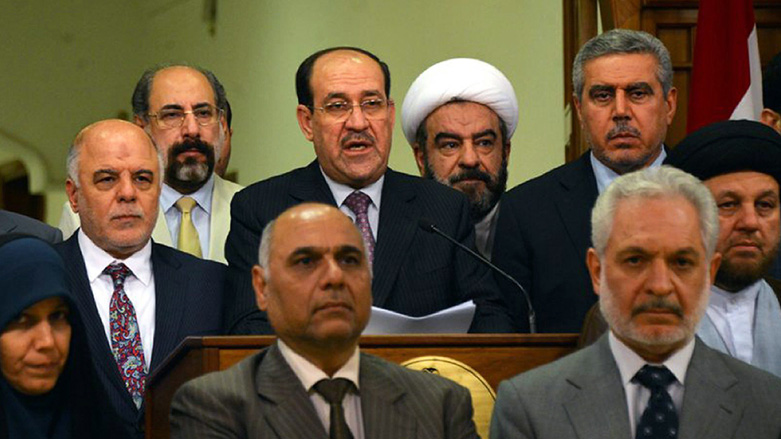Current and former Prime Ministers of Iraq to face off in May parliamentary elections

ERBIL, Kurdistan Region (Kurdistan 24) – Prime Minister of Iraq Haider al-Abadi on Saturday announced his candidacy for a second term as Premier in the upcoming May 12 parliamentary elections.
Abadi revealed his “Nasr al-Iraq” alliance would present itself at the spring elections, Arabic for “Victory for Iraq.” The alliance was formed after four years of fighting against Islamic State (IS), and it positions itself as a cross-sectarian block, with candidates from various ethnic and religious backgrounds from across Iraq.
Abadi, a Shia Muslim, took office in 2014 after eight years of Nouri al-Maliki having been in power. The latter was heavily criticized for being a close ally of Iran and was blamed for the Iraqi Army’s collapse in 2014 following the emergence of IS in the north of the country.
Maliki, the leader of the main ruling party and Abadi’s own party, the Shia Dawa Party, declared his candidacy on Saturday as well.
He mentioned that members of the Dawa Party are free to support his State of Law Coalition or Abadi’s Victory for Iraq Alliance.
Abadi gained popularity riding on his success in defeating the radical Islamist group, which ruled over a third of Iraq since 2014, and for rebuilding the Iraqi Army. He has also benefitted from substantial support from Washington and the US-led coalition.
Currently holding a ceremonial title as Vice-President of Iraq, Maliki remains a powerful politician as the leader of the Dawa Party and the head of the largest political coalition in the Iraqi Parliament.
The political structure in Iraq, established after the fall of the totalitarian government in 2003, reserves the post of Iraqi Prime Minister to a member of the majority Shia Arab community, with the Parliament Presidency allocated to Sunnis, and the country’s presidential role, which holds no executive powers, to the Kurds.
Editing by Nadia Riva
